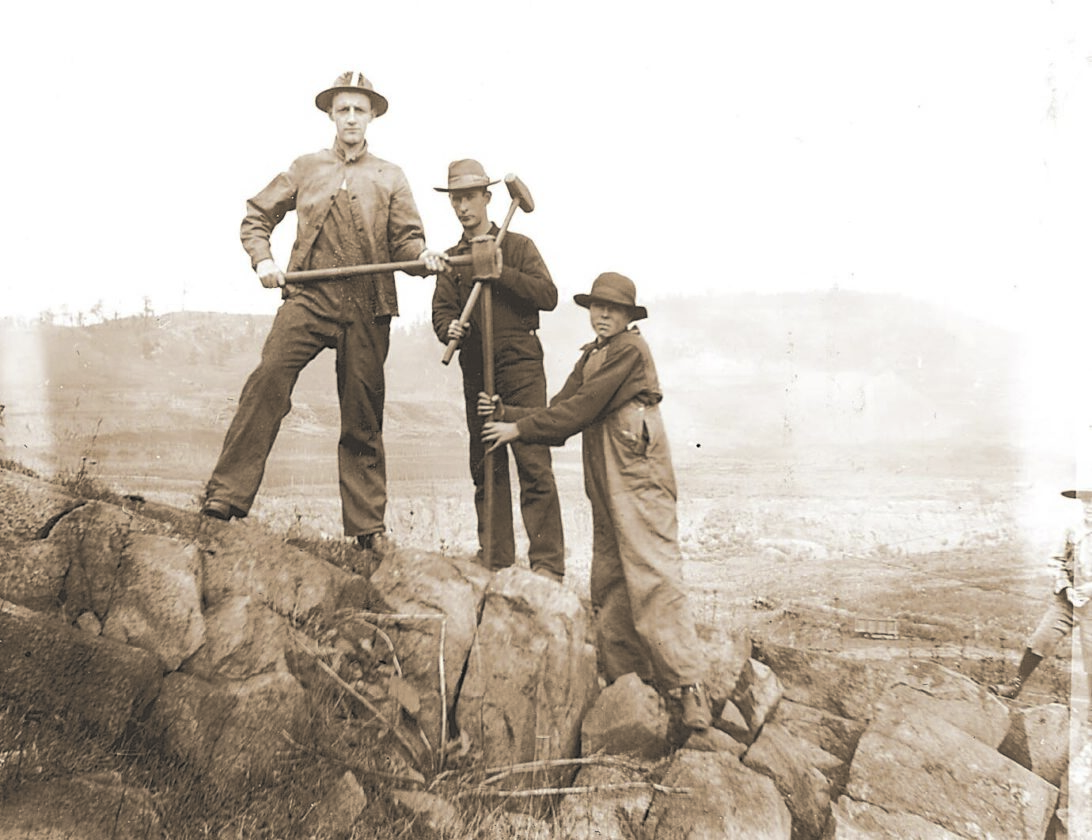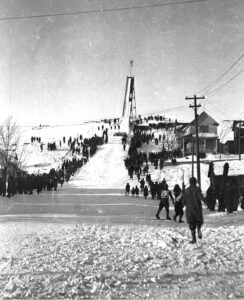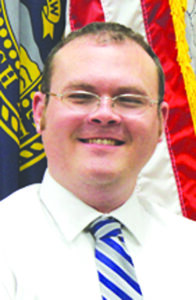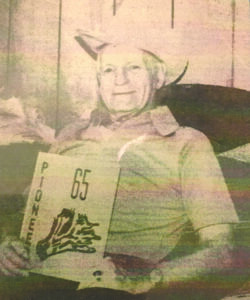Tony Guizzetti was a businessman

It was mining of this type that Tony Guizzetti was exposed to when he first arrived in Negaunee. (Jack Deo photo)
NEGAUNEE — In the early part of the century, the United States offered the opportunity for prosperity for many thousands of European immigrants, but it didn’t promise prosperity. The immigrants came here seeking a new life, a life in which success was possible for those willing to work hard enough for it.
In most cases, instant prosperity was not a reality that greeted immigrants. The struggle for survival in Europe was left behind, but a new struggle was waiting in America. The difference was that in this country, the struggle could be won.
Antonio (Tony) Guizzetti lived the struggle for survival in Europe and the struggle for prosperity in America. This Italian-born resident knew the hopes and fears of coming to America to build a life.
Tony was born Feb. 7, 1894 in Bergamo, Italy, the second son of Orazio and Caterina Guizettii. Growing up, his father was gone much of the time, working in India and America. They were poor and Tony’s father wanted to buy a piece of land in Italy but he didn’t have the money. So, Orazio Guizzetti came to Negaunee to work in the iron mines with the goal of saving enough money to return to Italy and buy land.
His plan did not work. When he returned to Italy, the price of land went up and he didn’t have enough money and he then returned to Negaunee to work in the mines to make more money. But before he left Italy, he opened a small flour mill for his sons to operate. The price of land continues to rise in Italy and the flour mill was a failure. The flour mill was sold and Tony went to work with the new owner. He was paid $1.90 a month.
In 1910, when Tony was 16, he got a letter from his father who was working in the Negaunee iron mines, asking him if he wanted to come to America, he would send him the money. Despite the objections of his employers, Tony told them he was going to America. Tony and a friend left Italy and came to Negaunee in July 1910.
His first full day in Negaunee was on July 4th and there was a lot going on. The bands were playing and what Tony thought were bombs were going off, were firecrackers. He wondered if it was always like this. Tony’s father took him to the Breitung Mine to try to get him a job but the mine captain said he was too young. And told the father to send him to school
Tony never attended school in Italy and he wasn’t going to start now. So he spent his first few months in Negaunee trying to learn the English language and fishing at Teal Lake. Then he got a lucky break: John Lisa, owner of the Negaunee Bakery, asked him if he wanted to learn how to be a baker. Tony learned the trade quickly. In time, he became an expert baker and even leased the bakery from John Lisa for a year in 1914-1915.
The bakery specialized in bread and sweets. He had a horse and driver who delivered house to house. Tony was drafted during World War l and became an American citizen. He was in the U.S. Army for more than a year and stationed for part of that time in Virginia. He became a baker in the Army. Tony believed it was his talent for making sweet cakes for his superiors that saved him from being sent to fight in the trenches of France
After the war, Tony returned to Negaunee and worked at Torreano’s Bakery. By 1920, he was ready to settle down. Torreano had a niece in Italy who wanted to come to America. So, Tony paid the fare for his future wife, Maria, to come to America. She got here on the first of November and they were married on Nov. 13. It was common at those times to send for a wife from the old country.
In 1925, Tony discovered that he was allergic to flour and had to quit the bakery business. Over the years, he became known as a prominent businessman in Negaunee. He operated the Black Diamond restaurant in the late 1920s on Iron Street. He later converted it to a music store where he sold some of the first radios in the Negaunee area. His store was well known for selling appliances, records and sheet music.
He turned the store back into a restaurant in the 1940s and sold it to Ma Adamini and it became known as the Dutch Gardens, later Gurchinoffs. He went into the hardware business and bought Sawbridges Hardware store and that building was torn down in the 1970s when the West End of Iron Street was condemned.
Tony was honored by the Sons of Italy for his contribution to the community. Tony’s words of his life as a businessman, “Well, I made a living.”






